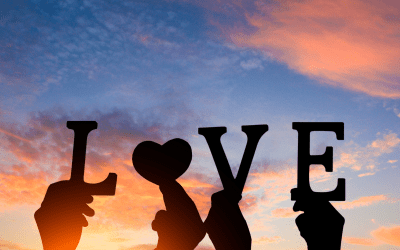
How to Navigate Changing Friendships in Your 20s and 30s
This post may contain affiliate links, which means we may receive a commission, at no extra cost to you, if you make a purchase through a link. Please see our full disclosure https://sagecounselingtherapyandwellness.com/disclosure-privacy-policy-terms-of-use/ for further information.
No one prepares you for the quiet grief of drifting from old friends or the awkwardness of making new ones as an adult. In your 20s and 30s, life can feel like a revolving door of transitions: new jobs, cross-country moves, marriages, parenthood, identity shifts. Amidst all that change, it’s only natural for friendships to evolve too. Sometimes deepening, other times fading, and often leaving us wondering what happened or what’s next.
The truth is, changing friendships are not just normal, they’re a necessary part of growing into who you are. But that doesn’t mean they’re easy. This guide is here to offer insight, validation, and practical tools to help you move through friendship transitions with more intention, emotional clarity, and self-compassion. Whether you’re grieving a lost connection or learning to build new ones, you’re not alone, and you don’t have to navigate this chapter without support.
Why Friendships Change
As we move through adulthood, it’s natural for our friendships to shift. Life doesn’t unfold on a single timeline. While some friends may be getting married or starting families, others might be focused on traveling, building careers, or staying close to home. These changes often bring shifts in responsibilities, priorities, and even values, which can create distance where there once was closeness. It’s not always a sign of failure; sometimes it’s just life moving in different directions.
Alongside these external transitions, we also grow internally. The person you were at 18 might not align with who you are at 30, and that’s not only okay, it’s expected. Some friendships, especially those formed in school or early work environments, may have been built more on convenience or shared context than deep compatibility. As we grow, we may begin to crave more meaningful, reciprocal connections that reflect who we are now.
It’s also worth acknowledging the emotional labor involved in maintaining adult friendships. Over time, some relationships can start to feel one-sided or emotionally draining. You might notice a lack of boundaries, repeated patterns of miscommunication, or a growing sense that you’re giving more than you’re receiving. Recognizing these dynamics isn’t about blame. It’s about honoring your time, energy, and evolving needs. Understanding why friendships change helps us let go with more peace and build new ones with more intention.
Grieving and Honoring Evolving Friendships
When a friendship changes or fades, it’s normal to feel a deep sense of loss. These connections often hold years of shared memories, inside jokes, and support. Letting go of a friendship can feel like losing a part of yourself. It’s okay to grieve a friendship that’s no longer in your life. Just because it didn’t “end badly” doesn’t mean it didn’t matter. Honor what that friendship gave you in the season it existed. It helped shape you, and that deserves space to be acknowledged.
Sometimes, though, closure doesn’t come through a final conversation. You may never get the clarity or goodbye you hoped for. In those moments, you can still create your own rituals to release and heal. Try writing a letter you never send, journaling your feelings, or practicing a symbolic act of letting go. These small yet meaningful gestures can provide emotional closure and help you move forward with intention.
Finally, stay open to the idea that some friendships may circle back. Life moves in seasons, and people grow in unexpected ways. Reconnection down the line is always a possibility—but for now, you can let go with love, not bitterness. Release the story of what “should have been” and make room for new, aligned relationships to enter.
Nurturing Healthy Friendships in Adulthood
As we get older, the definition of friendship often shifts. What matters more than having a large circle is having a few deeply aligned relationships, those that feel safe, reciprocal, and real. In adulthood, quality truly outweighs quantity. A handful of friends who see you clearly and show up consistently is more nourishing than a dozen surface-level connections.
With busy schedules and competing priorities, being intentional with your time is essential. That doesn’t mean daily texts or weekly dinners. Realistic connection can look like sending a voice note during a walk, scheduling a standing coffee date once a month, or just checking in with a “thinking of you” message. These can look different with each life stage; the important part is making your friendship a priority. Small efforts matter, especially when made with care.
Don’t be afraid to bring more vulnerability into your friendships. It’s powerful to name your needs, express appreciation, or even say, “Hey, I miss how close we used to be.” Awkward? Maybe. Worth it? Often, yes. Naming the tension or gaps can open the door to deeper connection and understanding. It shows the care and effort that you are bringing to the friendship.
And if you’re in a season of seeking new friendships, know that putting yourself out there as an adult is both brave and worthwhile. Join a book club, volunteer, attend a community event, or connect through a hobby you love. The process may be slow, but meaningful adult friendships are still possible and often more fulfilling than you expect.
If you’re finding that your friendships are shifting, evolving, or fading, you’re not alone. In your 20s and 30s, it’s completely normal for relationships to evolve as life changes and you grow into new versions of yourself. This isn’t a sign that you’re doing anything wrong; it’s simply part of being human. Some friendships will stay, others will go, and a few might surprise you by returning when the timing is right. Through it all, give yourself permission to grieve, reflect, and reimagine what friendship looks like for you now.
You deserve relationships that meet you where you are, not just where you’ve been. And with a little intention, openness, and self-compassion, it’s entirely possible to build a circle that feels supportive, authentic, and aligned with the person you’re becoming.
Which friendships in my life currently feel life-giving, energizing, or safe?
What friendships have shaped me the most so far, and what did they teach me?
What emotions come up when I think about drifting apart from a friend?
Is there a friendship I’m grieving right now? What do I want to honor about it?
Am I creating space in my life for new or more aligned connections to come in?
How can I hold compassion for both myself and others as we change?
To discuss how therapy could help you during this season of your life, please contact me or schedule your free 15-minute consultation.
Want to read more? Here are a few of my related blog posts you may be interested in checking out!





0 Comments